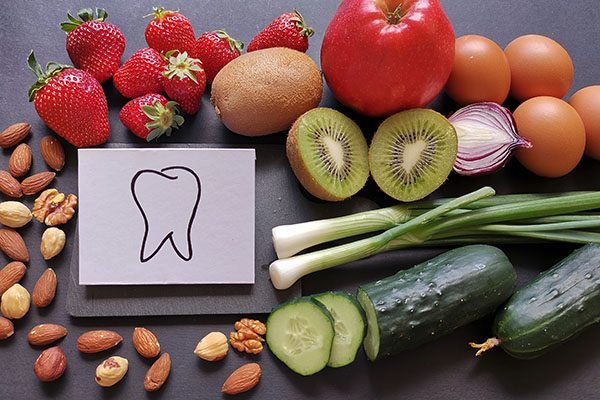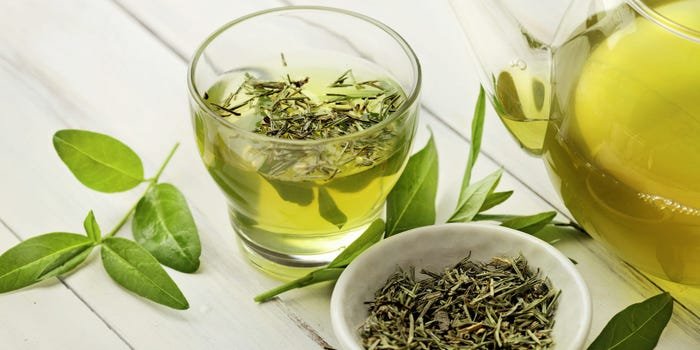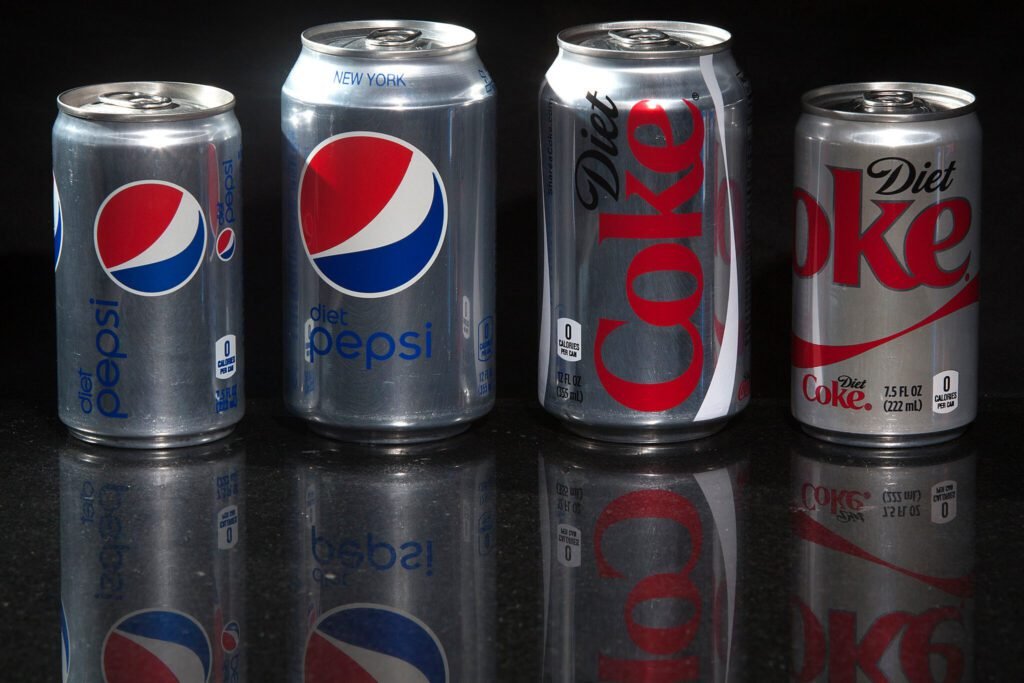Physical Address
304 North Cardinal St.
Dorchester Center, MA 02124
Physical Address
304 North Cardinal St.
Dorchester Center, MA 02124

Discover the best snacks for good oral hygiene and what to avoid.
Green tea is not only a popular beverage, but it also offers numerous benefits for Oral Hygiene. It contains several compounds that have been shown to improve dental health and prevent common oral issues. One of these compounds is catechins, which have powerful antibacterial properties. Catechins can help inhibit the growth of harmful bacteria in the mouth, reducing the risk of cavities and gum disease. Additionally, green tea contains fluoride, a mineral that is essential for strengthening tooth enamel and preventing tooth decay. Incorporating green tea into your daily routine can be a simple and refreshing way to support a healthy smile.
Another advantage of green tea for oral health is its ability to combat bad breath. Green tea has been found to inhibit the growth of odor-causing bacteria in the mouth, thereby reducing the occurrence of unpleasant breath. Furthermore, the antioxidants present in green tea can help reduce inflammation and promote gum health. Research has shown that regularly consuming green tea may be linked to a lower risk of gum disease, as it can help reduce gum bleeding and inflammation. With its many oral health benefits, including cavity prevention, bad breath control, and gum health improvement, green tea is certainly worth incorporating into your daily routine.

Fresh herbs not only add flavor to your meals, but they also offer several oral health benefits. Many herbs contain natural compounds that can inhibit the growth of harmful bacteria in the mouth. For example, parsley is rich in chlorophyll, which has antibacterial properties that can help freshen breath and reduce the risk of gum disease. Mint, another popular herb, contains essential oils that have been found to have antimicrobial effects, helping to fight off the bacteria that cause bad breath and dental plaque. Incorporating fresh herbs into your daily diet can be a simple and delicious way to support your oral health.
In addition to their antimicrobial properties, fresh herbs are often rich in vitamins and minerals that promote overall oral health. For instance, herbs like cilantro and basil are high in vitamin C, which is essential for maintaining healthy gums. Vitamin C helps promote collagen production, which is crucial for the strength and integrity of your gum tissue. Incorporating fresh herbs into your meals can be an easy and enjoyable way to increase your intake of vital nutrients and support the health of your gums and teeth.
Water is an essential component of maintaining good oral health. Not only does it keep the body hydrated, but it also helps promote saliva production, which plays a crucial role in neutralizing acids and washing away food particles from the mouth. According to experts, drinking water throughout the day can help prevent tooth decay and cavities by flushing out harmful bacteria and debris. It is also worth mentioning that water is a calorie-free and sugar-free beverage, making it an excellent choice for those looking to improve their oral health. So remember to keep a bottle of water nearby and stay hydrated throughout the day for a healthier smile.
Additionally, water can serve as a substitute for sugary beverages that can be detrimental to oral health. Individuals who frequently consume sugary drinks are more prone to tooth decay and other oral health issues. By replacing these sugary beverages with water, not only are you reducing your intake of added sugar, but you are also avoiding the harmful effects that these beverages can have on your teeth. So the next time you reach for a sugary soda or juice, consider opting for a refreshing glass of water instead and give your oral health a boost.

Sugarless chewing gum is a great option for maintaining good oral health. Not only does it help freshen your breath, but it also stimulates saliva production, which aids in the remineralization of teeth and neutralizes harmful acids in the mouth. Chewing sugarless gum for about 20 minutes after meals can help reduce the risk of cavities and prevent tooth decay.
One of the main benefits of sugarless chewing gum is that it doesn’t contain any added sugars. Regular gum that contains sugar can actually contribute to tooth decay by providing a food source for bacteria in the mouth. Sugarless gum, on the other hand, is sweetened with non-nutritive sweeteners like xylitol or sorbitol, which do not promote tooth decay. This makes it a much healthier alternative for satisfying your chewing cravings without compromising your oral health.
In addition to promoting saliva production and preventing tooth decay, sugarless chewing gum can also help with dry mouth, a condition that can increase the risk of tooth decay and gum disease. The act of chewing gum stimulates salivary glands, increasing saliva flow and providing relief from dryness. However, it’s important to note that sugarless gum is not a substitute for good oral hygiene practices such as brushing and flossing. It should be used as a supplement to a proper oral care routine for optimal results.
| Snack | Benefits for Oral Hygiene |
|---|---|
| Crunchy fruits | Apples, pears, and carrots help clean teeth and gums |
| Cheese | Increases saliva production, neutralizes acids |
| Yogurt | Contains probiotics that promote oral health |
| Nuts | Rich in minerals like calcium and phosphorus |
| Celery sticks | Act as natural toothbrushes, stimulate saliva |
| Raw vegetables | Increase saliva production, clean teeth naturally |
| Sugar-free gum | Stimulates saliva production, cleanses mouth |
When it comes to maintaining good oral health, what you eat can have a significant impact. Certain foods can increase the risk of dental issues such as cavities and tooth decay. To keep your teeth and gums in the best shape possible, it is important to avoid certain foods that can be harmful to your oral health.
One category of foods to avoid is sugary snacks and sodas. These treats are high in sugar, which can lead to the growth of harmful bacteria in the mouth. The bacteria thrive on the sugars found in these snacks and produce acids that can erode tooth enamel, leading to cavities. Sticky and chewy candies should also be avoided as they can cling to the teeth, allowing bacteria to feast on the sugars for a longer period of time.
Additionally, acidic fruits and juices can wear away tooth enamel over time, so it is best to consume them in moderation. By being mindful of your intake of sugary snacks, sodas, and acidic fruits, you can help protect your oral health and keep your smile shining bright.
| Category | Foods to Avoid |
|---|---|
| Sugary Foods | Candies, chocolates, sugary snacks |
| Carbonated Drinks | Soda, energy drinks, sweetened beverages |
| Sticky Foods | Caramels, toffees, dried fruits |
| Acidic Foods | Citrus fruits, tomatoes, vinegar-based sauces |
| Hard Foods | Hard candies, ice cubes, nuts, popcorn |
| Starchy Foods | Potato chips, crackers, bread, pasta |
| Sugary Condiments | Ketchup, barbecue sauce, sweetened dressings |
Sugary snacks and sodas are not only a treat for the taste buds but also a potential risk to your oral health. These sugary goodies can wreak havoc on your teeth, causing dental decay and cavities. When you consume sugary snacks and sodas, the sticky sugars cling on to your teeth, providing a breeding ground for harmful bacteria. These bacteria then produce acids that erode your tooth enamel, leading to tooth decay.
Research has shown that excessive consumption of sugary snacks and sodas can increase the risk of developing dental caries, especially in children. According to a study published in the Journal of Dental Research, frequent intake of sugary snacks and beverages was associated with a higher incidence of dental cavities. The study also highlighted the importance of limiting sugary snack consumption, particularly for children, to maintain optimal oral health.
Furthermore, the acidic nature of many sodas can also contribute to enamel erosion. The acid content in these beverages weakens the protective layer of your teeth, making them more susceptible to damage and tooth decay. It’s not just the sugar but also the acidity that poses a threat to your oral health.
To protect your teeth and maintain good oral health, it is advisable to minimize the consumption of sugary snacks and sodas. Instead, opt for healthier alternatives like fresh fruits and vegetables, which not only satisfy your sweet tooth but also provide essential nutrients for your overall well-being.
Sticky and chewy candies may be tempting for your taste buds, but they can wreak havoc on your oral health. These sweet treats are notorious for getting stuck in the crevices of your teeth, providing a breeding ground for harmful bacteria. As a dentist, I strongly advise against indulging in sticky and chewy candies on a regular basis.
The stickiness of these candies makes it difficult for saliva to wash away the sugar and particles, leading to an increased risk of tooth decay. Furthermore, the prolonged contact of sugary candies with your teeth creates an acidic environment that can erode tooth enamel over time. In fact, research has shown that sticky candies like taffy and caramels are some of the worst offenders when it comes to causing dental cavities and enamel erosion.
Instead of reaching for sticky and chewy candies, opt for healthier alternatives like fresh fruits or sugar-free gum. By making smarter snack choices, you can protect your teeth and maintain better oral health. Remember, prevention is key when it comes to dental care, and in this case, it starts with avoiding sticky and chewy candies.

Acidic fruits and juices are popular choices for many people because of their refreshing taste and nutritional benefits. However, it is important to be aware of the potential impact these foods can have on your oral health. The high levels of acidity in fruits such as oranges, lemons, and grapefruits, as well as juices made from them, can erode the enamel on your teeth over time.
Enamel erosion occurs when acids in the mouth break down the protective layer of the teeth, leaving them susceptible to cavities, sensitivity, and discoloration. The acid content in these fruits and juices can soften the enamel and make it more prone to damage. Additionally, the citric acid present in these foods can irritate the soft tissues in the mouth, leading to canker sores or mouth ulcers.
To minimize the potential harm of consuming acidic fruits and juices, it is recommended to limit your intake and also follow good oral hygiene practices. Drinking water after consuming acidic foods helps in rinsing away the acids, reducing their contact with the teeth. It is advised to wait at least 30 minutes before brushing your teeth after having acidic foods, as brushing immediately can further weaken the enamel. Opting for whole fruits instead of juices can also be a better choice, as chewing whole fruits stimulates saliva production, which aids in neutralizing the acidity in the mouth.
Processed and high-fat snacks are not only detrimental to your overall health, but they can also have a negative impact on your oral health. These types of snacks often contain excessive amounts of sugar, salt, and unhealthy fats, which can contribute to tooth decay, gum disease, and other oral health issues.
When you consume processed and high-fat snacks, the harmful bacteria in your mouth feed on the sugars and carbohydrates present in these foods, producing acids that attack your tooth enamel. Over time, this can lead to the development of cavities and tooth erosion. Additionally, the high salt content in processed snacks can dehydrate your mouth, reducing saliva production and increasing your risk of dry mouth, bad breath, and dental infections.
Furthermore, foods high in unhealthy fats, such as chips and fried snacks, can contribute to inflammation in the body, including the gums. Inflammation in the gums can lead to gum disease, which, if left untreated, can cause tooth loss and other serious complications. Therefore, it is important to be mindful of the amount of processed and high-fat snacks you consume and opt for healthier alternatives that promote good oral health.
Carbonated drinks, such as sodas and sparkling water, are extremely popular beverages consumed by people of all ages. However, from an oral health perspective, these drinks can pose significant risks. One of the primary concerns with carbonated drinks is their high sugar content. Consuming sugary beverages can lead to tooth decay and cavities, as the bacteria in our mouths feed on the sugars and produce acid that erodes the enamel. Additionally, carbonated drinks can be highly acidic, which further contributes to tooth enamel erosion and increases the risk of dental problems.
Moreover, it’s important to note that even sugar-free or diet carbonated drinks are not necessarily harmless choices for your dental health. Despite the absence of sugar, these beverages still contain acids that can weaken tooth enamel and lead to tooth sensitivity and erosion. The carbonation in these drinks can also dry out the mouth, reducing saliva production, which is essential for neutralizing acids and maintaining a healthy oral environment. It is therefore advisable to limit your consumption of carbonated drinks and opt for healthier alternatives such as water or green tea for better oral health.

Alcohol consumption can have negative effects on your oral health. Excessive alcohol intake can lead to dry mouth, which reduces saliva production and increases the risk of tooth decay and gum disease. Additionally, alcohol is acidic and can erode the enamel on your teeth, making them more susceptible to cavities.
Furthermore, alcohol can also contribute to bad breath due to its drying effect on the mouth. Alcohol consumption can cause a decrease in saliva flow, allowing bacteria to thrive and produce foul-smelling compounds. This can lead to persistent bad breath that is difficult to eliminate without addressing the underlying cause.
While occasional and moderate alcohol consumption may not cause significant harm to your oral health, it is important to be mindful of the potential risks. If you do choose to drink alcohol, it is recommended to do so in moderation, and to follow good oral hygiene practices such as brushing and flossing regularly to minimize any negative impact on your teeth and gums.
Citrus fruits, such as oranges, lemons, and grapefruits, are often hailed for their high vitamin C content and refreshing taste. While they offer numerous health benefits, it’s important to note their potential impact on oral health. The acidic nature of citrus fruits can erode tooth enamel over time, leading to tooth sensitivity and increased risk of cavities.
In a study published in the Journal of Dentistry, researchers found that the pH levels of various citrus fruits, including oranges and grapefruits, were significantly lower than the critical pH threshold of 5.5. This acidic environment can soften the tooth enamel, making it more susceptible to acid erosion and decay. Moreover, the high sugar content in some citrus fruits, such as mandarin oranges, can further contribute to dental problems if consumed in excess.
To minimize the potential harm to your teeth, it is advisable to consume citrus fruits in moderation and practice good oral hygiene. After enjoying citrus fruits, it’s important to wait at least 30 minutes before brushing your teeth, as the acid weakens the enamel temporarily. Additionally, drinking water after consuming citrus fruits can help rinse away the acid and promote saliva production, which aids in neutralizing the pH levels in the mouth. By being mindful of your citrus fruit consumption and maintaining a diligent oral care routine, you can still enjoy the benefits of these fruits while safeguarding your dental health.
Coffee and tea are popular beverages enjoyed by millions of people around the world. However, when it comes to oral health, these caffeinated drinks can have some negative effects. Both coffee and tea contain tannins, which are a type of polyphenol that can stain the teeth. Over time, this can lead to tooth discoloration and a less vibrant smile.
Moreover, coffee and tea are also acidic in nature. This acidity can erode the enamel, the protective outer layer of the teeth, making them more susceptible to decay and cavities. Additionally, the caffeine in these drinks can contribute to dry mouth, as it reduces saliva production. Saliva plays a crucial role in washing away food particles and neutralizing acids in the mouth, so a decrease in saliva can increase the risk of dental problems.
To mitigate the negative effects of coffee and tea on oral health, it is important to practice good oral hygiene. Regular brushing and flossing, along with routine dental check-ups, can help maintain the health and appearance of your teeth. Furthermore, it may be beneficial to limit your consumption of coffee and tea, or use a straw to minimize contact with the teeth. Seeking professional teeth whitening treatments or using whitening toothpaste can also help combat tooth discoloration caused by these beverages.
Incorporating good snacking habits and making informed choices about what we consume can make a significant difference in our oral health. By understanding the potential impact of coffee and tea on our teeth and taking proactive steps to maintain good oral hygiene, we can enjoy these beverages while still prioritizing our dental well-being.
Snacking is an integral part of our daily routine, and choosing the right snacks can have a significant impact on our oral health. When it comes to incorporating good snacks into your daily routine, there are a few key factors to consider. First and foremost, opt for snacks that are low in sugar and high in nutrients. This will help to minimize the risk of tooth decay and maintain a healthy smile.
One excellent snack option that fits the bill is green tea. Green tea contains natural compounds called catechins, which have been shown to have antimicrobial properties and can help combat the bacteria that contribute to tooth decay. Additionally, green tea is rich in antioxidants, which can promote overall oral health. So, next time you’re reaching for a snack, consider brewing a fresh cup of green tea to enjoy.
Another great option for incorporating good snacks into your daily routine is fresh herbs. Not only do they add flavor to your meals, but certain herbs like parsley and mint can also freshen your breath. This is especially beneficial after consuming foods with strong odors. Furthermore, herbs like parsley contain natural compounds that can help neutralize the bacteria that cause bad breath. So, try adding a sprinkle of fresh herbs to your meals or enjoy them as a refreshing snack on their own. By making these small changes to your snacking habits, you can effectively improve your oral health.
Maintaining good oral hygiene is essential for keeping your teeth and gums healthy. Here are some tips to help you achieve optimal oral health:
1. Brush your teeth twice a day: Make sure to brush your teeth for at least two minutes using a fluoride toothpaste. This helps to remove plaque and prevent tooth decay.
2. Floss daily: Flossing is an important part of oral hygiene as it removes debris and plaque from between your teeth and along the gumline that your toothbrush can’t reach.
3. Use mouthwash: Rinse your mouth with an antimicrobial mouthwash after brushing and flossing to kill bacteria and freshen your breath. Look for a mouthwash that contains fluoride to provide additional protection against cavities.
4. Stay hydrated: Drinking plenty of water throughout the day helps to wash away food particles and stimulate the production of saliva, which is important for maintaining good oral health.
5. Visit your dentist regularly: Regular dental check-ups and professional cleanings are crucial for maintaining good oral hygiene. Your dentist can identify any oral health issues early on and provide appropriate treatment.
By following these tips, you can maintain good oral hygiene and keep your teeth and gums healthy for years to come. Remember, prevention is key when it comes to oral health, so make oral hygiene a priority in your daily routine.
Maintaining good oral health is essential for overall well-being, and incorporating smart snacking habits can play a crucial role in nurturing your oral health. By choosing snacks that are nutritious and beneficial for your teeth and gums, you can significantly reduce the risk of dental issues and promote a healthier smile.
One of the key aspects of smart snacking for oral health is opting for foods that are low in sugar and acidity. Sugary snacks and drinks pose a significant threat to our teeth as they provide a breeding ground for harmful bacteria that produce acid, leading to tooth decay. By avoiding sugary snacks and sodas, sticky and chewy candies, and acidic fruits and juices, you can protect your teeth from enamel erosion and cavities. Instead, choose snacks like fresh fruits and vegetables, cheese, yogurt, and nuts that are not only nutritious but also promote saliva production, which helps wash away food particles and neutralize acids in the mouth.
Incorporating these smart snacking habits into your daily routine can make a noticeable difference in your oral health. By being mindful of the foods you consume and making healthier choices, you can maintain strong and healthy teeth for years to come. Remember, a well-balanced diet combined with regular dental check-ups and proper oral hygiene practices form the foundation for optimal oral health. So, make a conscious effort to nurture your oral health through smart snacking, and enjoy a bright and beautiful smile that reflects your commitment to overall wellness.
Yes, green tea is known to have anti-inflammatory properties and can help reduce the risk of gum disease and tooth decay.
Fresh herbs like parsley and mint can act as natural breath fresheners and can also help reduce bacteria in the mouth.
Yes, drinking water helps flush away food particles and bacteria, keeps the mouth hydrated, and stimulates saliva production, which is important for maintaining good oral health.
Yes, chewing sugarless gum after meals can help stimulate saliva production and wash away food particles, reducing the risk of tooth decay.
Some foods to avoid for better oral health include sugary snacks and sodas, sticky and chewy candies, acidic fruits and juices, processed and high-fat snacks, carbonated drinks, alcohol, citrus fruits, coffee, and tea.
Sugary snacks and sodas can increase the risk of cavities and tooth decay as the sugar combines with bacteria in the mouth to produce harmful acids.
Sticky and chewy candies can get stuck in the crevices of the teeth, increasing the risk of tooth decay and cavities.
Acidic fruits and juices can erode the enamel on the teeth, making them more susceptible to cavities and tooth sensitivity.
Processed and high-fat snacks can contribute to the growth of harmful bacteria in the mouth, leading to tooth decay and gum disease.
Carbonated drinks contain high levels of phosphoric and citric acid, which can erode the tooth enamel and increase the risk of cavities.
Alcohol can dry out the mouth, reducing saliva production and increasing the risk of gum disease and tooth decay.
Citrus fruits are highly acidic and can erode the enamel on the teeth, making them more prone to cavities and tooth sensitivity.
Coffee and tea can stain the teeth and also contain tannins that can contribute to tooth discoloration and enamel erosion if consumed excessively.
You can incorporate good snacks by choosing healthier options like fresh fruits and vegetables, nuts, yogurt, and cheese, and avoiding sugary and acidic snacks.
Some tips for maintaining good oral hygiene include brushing your teeth twice a day, flossing daily, using mouthwash, visiting the dentist regularly, and eating a balanced diet.
Smart snacking involves choosing nutritious and low-sugar snacks, which can help maintain a healthy mouth, prevent cavities, and reduce the risk of gum disease.